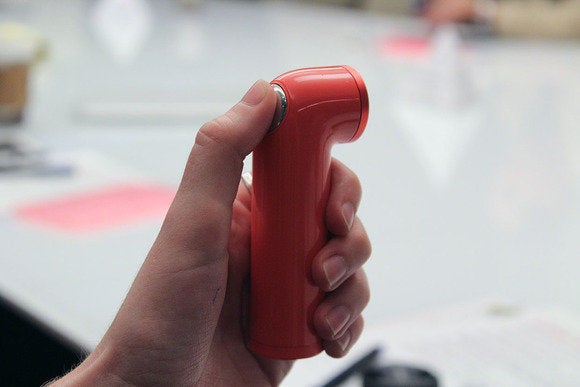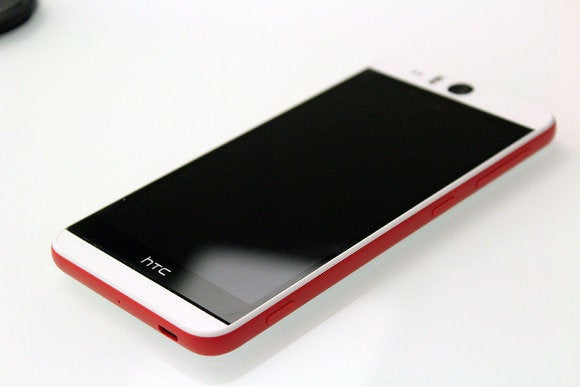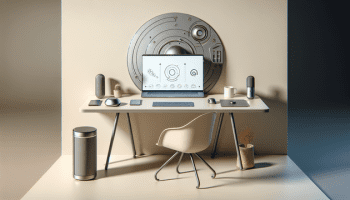The mobile market may be dominated by manufacturing powerhouses like Samsung , but that isn’t stopping HTC in its continuing battle for relevance. The Taiwan-based company’s is now tapping into the action/lifestyle camera sector—an area its competitors haven’t yet penetrated.
“ feel we’ve got credibility that’s solely dedicated to [quality] imaging experiences,” said Nigel Newby-House, HTC’s Executive Vice esident of oduct anning, in an interview on Tuesday. “ basically looked at the marketplace, looked at how people are using their smartphones cameras today, thought, ‘This is sub optimum.’”
And thus was born the HTC RE, an action-sports camera that looks nothing like a smartphone, but still tells a vivid story about where HTC is taking its greater mobile portfolio.


Don’t move or I’ll shoot! The new RE camera, that is.
Announced a day after my closed-door interview, the oddly shaped HTC RE—a 16-megapixel camera with a 146-degree wide-angle lens a companion app for adding cool effects—is part of a one-two punch that’s intended to affirm HTC’s expertise in consumer-focused imaging products. The new camera works with iOS as well as Android, puts HTC in a “companion device” market that may offer just enough breathing room for HTC to compete.
The second part of HTC’s new imaging story is the Desire Eye, a 5.2-inch Android phone with two 13-megapixel camera sensors, front back. Clearly, HTC is trying to find something, anything, to differentiate itself from the 800-pound Samsung Gorilla. So why not work the imaging angle? At this point in the mobile game, simply being different is a strategy in of itself.
Newby-House emphasized that while the HTC RE isn’t exactly a Goo, isn’t exactly a point–shoot, it’s still a pure lifestyle camera, through through. Simply gripping the RE turns it on, the whole point of the device is to record life’s special moments without getting bogged down by the traditionally cumbersome mechanics of taking pictures recording video.


HTC announced a st-alone action camera at its event dnesday in New York City.
Newby-House stressed HTC isn’t giving up on smartphones outright, but that it’s hoping to find success with companion devices. “The reality is that those devices are going to start becoming connected themselves,” he said. “There will still be these companion devices, where we can enhance people’s experiences, but they may still remain connected to a smartphone.”
So what’s the end game? Is HTC trying to become a camera company? Newby-House shot down that likelihood, said HTC is simply going after an audience that’s not being served by the Nikons Sonys of the world: Customers who want better-than-typical-smartphone-caliber image-capture in their pockets, 24/7. Of course, it’s an admirable goal, but it doesn’t factor in the reality that Sony Nikon are bigger household names that’ve been around for generations. Still, Newby-House says, “a lot of those guys have got more of a struggle against us than we’ve got against them.”


HTC’s Desire Eye.
HTC isn’t even in the top five of worldwide phone manufacturers, but Newby-House remains optimistic about HTC’s future in the mobile realm. The company’s strategy has reeked of throwing mud at the wall, now we have this new detour into imaging. Newby-House conceded that lifestyle cameras are a stepping stone in figuring out what’s next.
“ think [the RE] is a fantastic device, but our phones are really the core to HTC’s business right now,” he said. “The line gradually starting to shift between phones other connected devices is not going to be significant in 2014. But I do think if you wind the clock forward three to five years, told me that HTC’s business was 50 percent smartphones 50 percent other connected devices, I don’t think that’s unrealistic.”
















